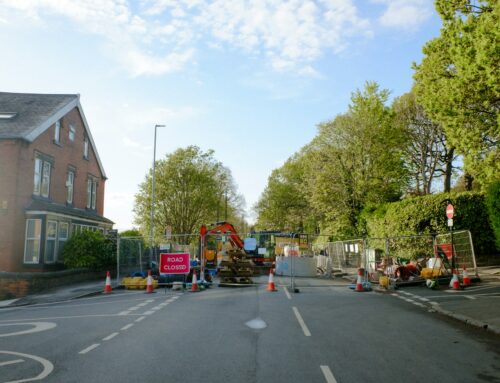Recent days have been marked by a broad range of responses to the UK Government’s Spending Review, which Chancellor of the Exchequer Rachel Reeves presented to Parliament on 11th June.
The Chancellor’s delivery of the Phase 2 outcome was certainly an important event from the perspective of transport consultants and their clients.
The Government confirmed last autumn that this Spending Review would set government departmental resource budgets for three years, and capital budgets for five years. Reviews are expected to take place every two years.
Ministers’ funding announcements on transport received a warm reception
Ultimately, the announcements made in relation to the transport sector were greeted positively by Sue Percy, chief executive at the Chartered Institution of Highways and Transportation (CIHT).
She stated that the professional body “welcomes the commitment to transport spend,” adding that the Spending Review showed ministers’ understanding of “the vital role that highways, transport, and infrastructure plays in the UK economy.”
What were some of the highlights of the Spending Review for the transport sector?
In its initial response to the Spending Review announcements, CIHT drew attention to various developments that it said mirrored what it had called for.
These included:
- £750 million per year allocated to the maintenance and improvement of bus services. This funding is set to include the introduction of franchising pilots in areas of North Yorkshire and Cheshire.
- £2.6 billion in capital investment to drive forward the decarbonisation of transport from 2026-27 until 2029-30.
- The extension of the £3 bus fare cap – previously expected to end in 2025 – by more than a year until March 2027.
- £24 billion of capital funding covering the period from 2026-27 to 2029-30, for the maintenance and improvement of motorways and local roads up and down the UK.
- The impending publication later in June of the Government’s ’10-Year Infrastructure Strategy’.
There was a range of other announcements in the Spending Review that the learned society also welcomed, including:
- £2.3 billion of investment in the Local Transport Grant over Phase 2 for enhancements to local transport. These are set to encompass such measures as bus lanes, cycleways, and congestion improvement measures.
- Total investment of £15.6 billion by 2031-32 through the new Transport for City Regions (TCR) settlements, to give long-term transport settlements to metro mayors of some of England’s biggest city regions.
- A yearly allocation of £1.2 billion for training and upskilling, with the creation of more apprenticeship opportunities a particular priority.
- As much as £27.8 billion total capital to be invested through the National Wealth Fund (NWF), with the aim of driving growth and generating jobs across the country in sectors such as transport.
- The capital renewals programme of Transport for London (TfL) getting a multi-year settlement of £2.2 billion in funding for the period spanning 2026-27 to 2029-30.
- Devolved governments being in line for an extra £5.7 billion per year on average through the operation of the Barnett formula. This amounts to Scotland getting £52 billion, Wales receiving £23 billion, and Northern Ireland being granted £21 billion.
In conclusion, CIHT said that it “looks forward to continuing to work with HM Treasury, the Department for Transport, and other government departments to ensure that the UK’s transport network is fit for all our futures.”
To receive the benefit of our leading transport consultants’ guidance and expertise as you take on your next project, please enquire today to your closest Transport Planning Associates (TPA) office.





